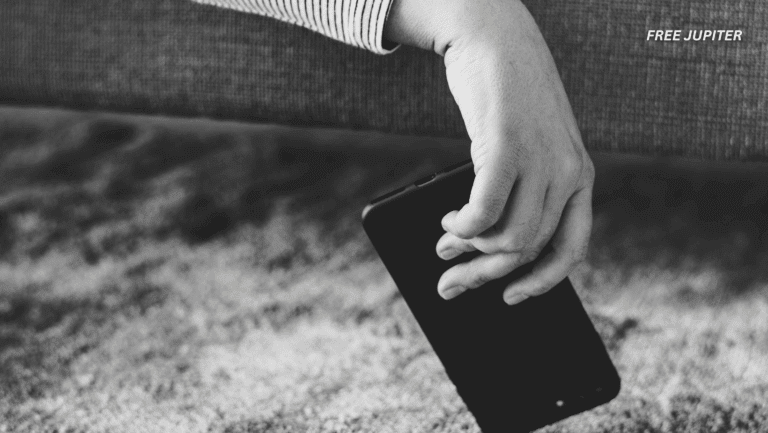Friendly Note: FreeJupiter.com shares general info for curious minds 🌟 Please fact-check all claims—and always check health matters with a professional 💙
Have you ever found yourself enjoying a lively social event one night, only to crave total solitude the next day? Or maybe you’ve been described as both outgoing and quiet, depending on who you’re with. If that sounds familiar, you might be what psychologists call an extroverted introvert—a fascinating blend of both worlds.
While we often hear people described as either extroverts or introverts, human personalities usually don’t fit into neat little boxes. Instead, most of us land somewhere in between. That’s where the extroverted introvert lives—someone who enjoys social time, but also seriously values their alone time.
Let’s break down what this hybrid personality looks like, without any jargon, so it’s easy to see if it fits you.
1. You Secretly Love When Plans Get Canceled
You were totally fine with going to that dinner, but when someone texts to cancel? Pure bliss.
It’s not that you didn’t want to hang out—it’s just that staying in cozy clothes, watching your favorite show, or simply sitting in silence sounds equally appealing (if not more so). You’re happy either way, but the sudden free time feels like a gift. And yes, sometimes you even hope someone else cancels so you don’t have to be the one to do it.
2. You’re Social, But Picky About Events
You don’t hate socializing. In fact, you can be really charming in the right setting. But you’re not up for every party, gathering, or event.
You might enjoy a small dinner with close friends, or a concert with a band you love. But a noisy networking mixer or a crowded beer fest with casual acquaintances? That’s a no from you. You prefer social settings that feel meaningful or enjoyable—not just social for the sake of it.
3. You’d Rather Have One Deep Chat Than Ten Small Ones
You know that feeling when you’re at a party and someone starts talking about the weather or what they do for work—and your soul quietly leaves your body? That’s because small talk isn’t your jam.
Extroverted introverts crave depth. If you’re going to talk, you want it to matter. Conversations about goals, fears, the meaning of life, or even weird philosophical theories? Now that lights you up. You’d rather have one soul-nourishing conversation than mingle with the whole room.
That said, you can still handle small talk when needed—and sometimes even enjoy it—especially if it leads somewhere deeper.
Read more: Things That Introverts Genuinely Enjoy, But Make Others Feel Uncomfortable
4. After Being Around People, You Need Time to Recharge
You might look super comfortable at a party—chatting, laughing, being present—but what others don’t see is the after part. Once it’s over, you feel drained and need alone time to recharge.
This is where people often mistake extroverted introverts for full-on extroverts. You show up well, but it costs you energy. Unlike true extroverts who gain energy from social interactions, your battery slowly depletes the longer you’re “on.”
So after a night out, don’t be surprised if you need a full day of solitude to recover.
5. You Keep Your Circle Small, But Deep
You’re not the kind of person who collects acquaintances like trading cards. Instead, you prefer a few close, meaningful relationships.
You might know lots of people, but only a select few really know you. That’s because emotional connection matters more to you than surface-level interactions. And let’s be honest—getting to know new people takes effort, and you only have so much energy to spare.
So while you might come off as social, you’re actually pretty intentional with who you let into your inner world.
6. People Often Think You’re an Extrovert
Because you can turn on the charm and engage in social settings, many assume you’re a full-blown extrovert. But what they don’t see is what happens after: the quiet retreat, the need for rest, the mental recovery.
You might be smiling in the room, but you’re secretly counting the minutes until you can slip away to recharge. Or you might go to a big event but only talk to a handful of people instead of working the room. This “social-on-the-outside, introvert-on-the-inside” vibe confuses people—and that’s okay.
Read more: Scientists Have Found An Alarming Link Between AI Use and Psychopathy
How to Take Care of Your Extroverted Introvert Self
If you’ve recognized yourself in the signs of an extroverted introvert, congratulations—you’ve unlocked an important insight into how your mind and energy system works. And here’s the reassuring part: you’re not broken, inconsistent, or confusing. You’re just wired differently, and learning how to take care of that unique wiring is a game-changer for your emotional, mental, and even physical well-being.
🔋 Embrace Your Recharge Time
Your need for solitude isn’t a flaw—it’s fuel.
You might love connecting with others, having heart-to-heart conversations, or even hosting the occasional game night. But after all that social energy is spent, you need time to refill your cup.
Recharge time doesn’t have to mean total isolation in a dark room (unless that’s your thing). It could look like:
- Reading alone in bed with your favorite playlist humming softly
- Taking a solo walk without your phone
- Watching a comfort show on Netflix without needing to interact with anyone
- Simply sitting in silence doing absolutely nothing (yes, that counts)
Remember: this downtime isn’t laziness—it’s recovery. It’s what allows you to show up as your best self when it is time to be social again.
📆 Plan Social Time with Buffers
Spacing out your social plans is not just practical—it’s essential for your energy management.
If you have dinner with a friend on Thursday and a big family BBQ on Saturday, don’t squeeze in a birthday party on Friday “just because it fits.” You might physically have the time, but emotionally? Not so much.
Try this:
- Schedule a “buffer day” between high-energy activities
- Keep Sundays sacred for rest and reset
- Don’t commit to back-to-back nights out, even if you love everyone involved
Think of it as emotional breathing room. These gaps between social events give your nervous system a chance to calm down and your inner introvert a moment to exhale.
🚧 Set Boundaries and Say No (Without Guilt)
Let’s be honest—saying “no” isn’t always easy. But for extroverted introverts, it’s a vital act of self-care.
Because you can handle social situations well, people often assume you’re always up for something. But you’re not a 24/7 social machine, and saying “yes” when you really mean “I’d rather recharge” sets you up for burnout.
Here’s how to set gentle boundaries without offending:
- “That sounds fun, but I’m taking some downtime that day.”
- “I’d love to hang out—can we do something low-key instead?”
- “This week’s a bit full for me. Let’s find another time when I can be more present.”
Boundaries are not about pushing people away—they’re about making room for your real self to exist comfortably, and sustainably, in the world.
🗣️ Communicate Honestly and Proactively
You don’t owe everyone a full breakdown of your social battery, but being upfront about your needs makes life smoother—for you and everyone else.
A simple heads-up can do wonders:
- “Hey, I’m feeling a bit peopled-out. Can we raincheck?”
- “I love you guys, but I’ll probably leave early tonight to recharge.”
- “I need a quiet weekend. Don’t take it personally—I’m just regrouping.”
When you communicate your limits with honesty and kindness, it prevents miscommunication, awkward feelings, and resentment. Plus, it gives others permission to be honest about their own boundaries too.
And here’s the secret sauce: the more consistent you are about voicing your needs, the more people learn how to support you without you having to explain every time.
🧠 Know Your Social Patterns
Take some time to track how different social interactions affect you. Think of it like keeping an emotional energy diary.
Ask yourself:
- Which kinds of events leave me feeling energized?
- Which ones leave me feeling drained or overstimulated?
- What time of day am I most socially “on”?
- How many social events can I handle in one week before I start craving solitude?
When you start noticing your own rhythms, it becomes easier to plan your time, protect your peace, and avoid unnecessary overwhelm.
Read more: Researchers Have Now Identified Four Distinct Types Of Autism
Final Thought: You’re Not Broken—You’re Just Balanced
Extroverted introverts are a beautiful mix of social spark and quiet depth. You can charm a room and disappear for a weekend without texts. You’re not indecisive or flaky—you just understand your limits and your needs.
And if you’re unsure where you land on the introvert-extrovert spectrum, talking to a therapist or counselor can help you learn more about what fuels you—and what drains you.
So next time someone asks if you’re an extrovert or introvert, you can proudly say: “A little bit of both, actually.”










